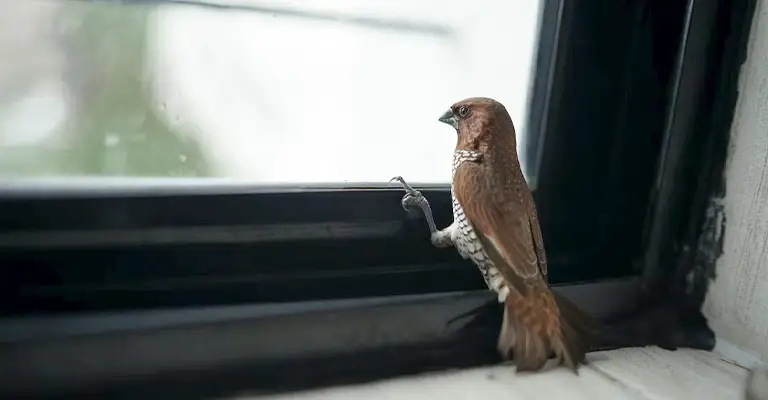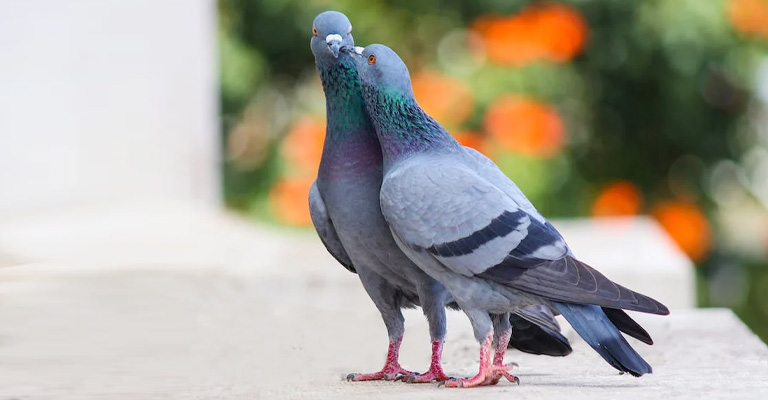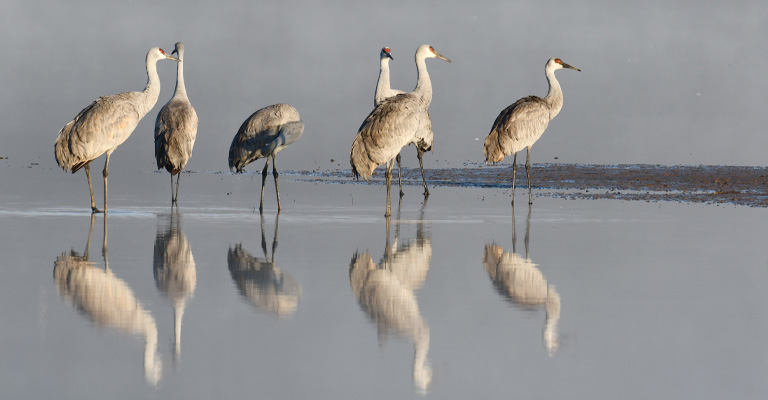Birds pecking at windows can be a perplexing and frustrating occurrence for many homeowners. The repetitive tapping and the potential damage to windows can leave us wondering why birds engage in such behavior.
Understanding the reasons behind this peculiar conduct allows us to approach the situation with empathy and find effective solutions.
Window pecking in birds can be attributed to various factors, including territorial behavior, the mating season, and mistaken reflections.
By delving into these motivations, we can gain insights into the natural instincts and behaviors of our feathered friends.
In this article, we will explore the reasons why birds peck at windows and provide practical tips to prevent and mitigate this behavior, ensuring the well-being of both birds and our windows.

Why Do Birds Peck at Windows?
There are usually a lot of reasons behind your birds pecking at the windows. The most common reasons are right below.
Territorial Behavior
Territorial behavior is a common trait among many animal species, including birds. It refers to the instinctual defense and protection of a specific area or territory.
Animals exhibit territorial behavior to ensure access to resources such as food, mates, and shelter. By establishing and defending their territory, animals can reduce competition and increase their chances of survival and reproductive success.
Territorial behavior can be observed through various displays, including marking boundaries, vocalizations, aggression towards intruders, and scent or visual signaling.
Understanding territorial behavior is crucial for comprehending animal interactions and population dynamics in the wild.
Mating Season

Mating season, also known as the breeding season, is a specific period in which animals engage in behaviors and activities related to reproduction.
During this time, individuals of a particular species exhibit increased sexual activity and compete for mates. Mating seasons are often influenced by environmental factors such as temperature, food availability, and daylight duration.
Animals may display elaborate courtship rituals, vocalizations, or physical displays to attract mates and establish dominance hierarchies.
Mating behaviors can vary widely across species, ranging from complex dances and displays to vocal calls and pheromone releases.
The timing and duration of mating seasons are crucial for successful reproduction and the continuation of species.
Food

Food is an essential resource that sustains life for all organisms. It provides the necessary energy and nutrients for the growth, development, and maintenance of bodily functions.
Animals have evolved diverse strategies to obtain food based on their ecological niche and dietary requirements. Herbivores consume plant matter, carnivores prey on other animals, and omnivores have a mixed diet.
Food availability and accessibility influence an organism’s behavior, habitat selection, and feeding mechanisms. Animals may forage, hunt, scavenge, or engage in other feeding strategies to secure their nutritional needs.
The study of food and feeding ecology is crucial for understanding ecosystems, species interactions, and the balance of energy flow in nature.
Protection
Protection is a fundamental aspect of survival for organisms. It refers to the measures taken to defend against potential threats and ensure personal safety.
Animals employ various strategies for protection, including physical adaptations, behaviors, and social structures. Physical adaptations may include camouflage, armor, venom, or defensive structures.
Behavioral strategies involve avoiding predators through hiding, fleeing, or displaying warning signals. Some species form social groups or alliances to enhance protection through collective defense.
Protection can also involve the creation or occupation of shelters or burrows to seek refuge from predators or adverse environmental conditions.
The ability to protect oneself is vital for an organism’s survival, allowing it to thrive and pass on its genetic material to future generations.
Reflection confusion

Birds cannot differentiate between real objects and reflections. They may perceive the reflection of trees, plants, or bird feeders in windows as actual resources, attracting them to peck at the window.
It’s important to note that these reasons are not mutually exclusive, and multiple factors may contribute to a bird’s window-pecking behavior.
Understanding these reasons can help us implement strategies to prevent window collisions and reduce stress for birds.
Tips for Stopping Birds from Pecking Into Windows
If you are always irritated with the pecking birds right beside your window, you must look forward some tips to stop them, right? If yes, the following tricks will definitely help you.
Block the Reflection
Birds often mistake their own reflection for an intruding bird. By applying decals, stickers, or other objects to the outside of the window, you can break up the reflection and make it less appealing or confusing to the birds.
Keep Your Curtains Closed
Closing your curtains or blinds can help obstruct the view of the outside, reducing the likelihood of birds seeing their reflection and being enticed to peck at the window.
Install Window Film
Applying a frosted or opaque window film can significantly reduce reflections and make the glass less attractive to birds. This film allows natural light to enter while minimizing the risk of window pecking.
Paint the Windows
If you’re open to a more permanent solution, consider painting the exterior of your windows with tempera paint or soap-based paint. This method effectively eliminates the reflective surface and discourages birds from pecking.
Create Distractions
Placing bird feeders, bird baths, or other bird-friendly attractions away from the windows can redirect their attention and keep them occupied elsewhere.
External Deterrents
Installing netting, screens, or other physical barriers on the outside of the window can physically prevent birds from accessing the glass and reduce the chance of pecking.
Provide Alternative Perches and Feeders
Install bird feeders, birdbaths, or birdhouses away from windows to redirect the bird’s attention and provide them with alternative areas of interest. By attracting birds to other locations in your yard, you can reduce their proximity to windows.
Remember, it may take some trial and error to find the most effective method for your specific situation. Here, you need to be patient and observe the behavior of the birds to determine the most suitable deterrent for your windows.
FAQs
Pecking at windows can be harmful to birds as they may sustain injuries from striking the glass. Additionally, repeatedly pecking at windows can cause stress and exhaustion for the bird.
There are several ways to prevent birds from pecking at windows, including placing bird-repelling decals or stickers on the glass, installing screens or netting over the windows, and using opaque window coverings. Additionally, moving feeders away from windows or reducing the amount of light that shines into windows can also help deter birds from pecking at them.
While it may be tempting to scare birds away from windows, it is not recommended as it can cause unnecessary stress and harm to the birds. Instead, it is recommended to use bird-repelling methods such as decals, screens, or opaque window coverings to prevent birds from pecking at windows.
Birds can peck at windows at any time of the year, although it is more common during mating season when birds are more territorial and aggressive. Additionally, birds may peck at windows if they see reflections of insects or food near the glass, or if they see reflections of predators.
If you find a bird that has injured itself from pecking at a window, it is important to handle it with care. You can place the bird in a quiet, dark place to rest and recover. If the bird is badly injured, it may need to be taken to a wildlife rehabilitation center for treatment.
Conclusion
Birds pecking at windows may seem like a nuisance, but understanding the underlying reasons behind this behavior allows us to address the issue with compassion and find effective solutions
I’ve already shared some tips to get rid of them and explain the reason why they do that. So, if you read the content carefully, you can be able to do something that is effective.
It’s crucial to remember that our actions should prioritize the well-being of these fascinating creatures.
By striking a balance between preserving our living spaces and respecting the natural behaviors of birds, we can coexist harmoniously with our avian neighbors.